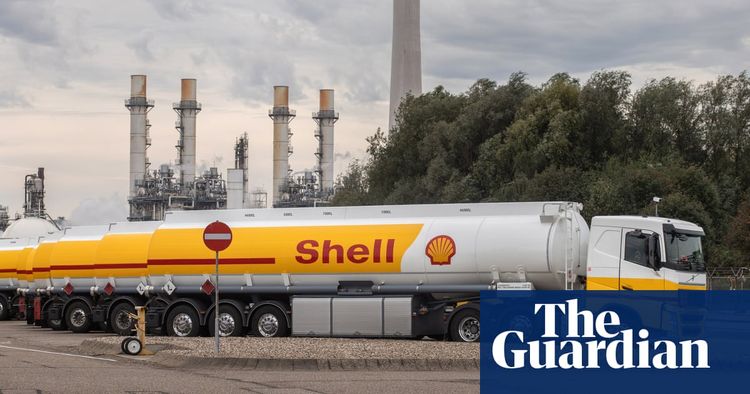Shell drops target to cut oil production as CEO guns for higher profits

Shell has changed its strategy and decided not to decrease oil production annually until the end of the decade anymore. Instead, the company is now focusing on fossil fuels and plans to pay more dividends to its shareholders. This shift in approach comes under the leadership of the newly appointed CEO, Wael Sawan.
On Wednesday, the major British oil company listed on the Financial Times Stock Exchange (FTSE) 100 revealed that they plan to keep their production of oil steady until 2030. This announcement comes after they had previously stated that they intended to decrease production by approximately 1-2% per year.
In September of last year, Sawan became the new CEO of Shell, taking over from Ben van Beurden. Van Beurden had set a goal of reaching net zero carbon emissions by 2050, which surprised some activists and investors. However, the plan only called for gradual reductions in fossil fuel production. Sawan has prioritized providing financial benefits for investors during his leadership.
As part of its plan for the year 2021, Shell has announced that it will be taking steps to reduce its oil production by approximately 1-2% each year through both divestments and natural decline.
On Wednesday, Shell contended that the previous plan did not promise to consistently lessen oil production.
According to reports, Shell has announced that it has successfully achieved its target within a period of seven months since declaring it. The company managed to hit its target due to a massive $9.5 billion sale of its stake in an oil project based in the Permian Basin, Texas, which took place later in 2021. As per records, the total output of Shell in 2019 was around 1.9 million barrels per day. However, this number experienced a significant decline of 21% and dropped to 1.5 million barrels per day in recent times.
A representative from Shell stated that their aim of decreasing oil production by the year 2030 remains the same. They actually achieved this goal eight years in advance.
During the recent unveiling of a strategic update in New York, Shell announced their new plan to prioritize their most lucrative areas and reduce expenses. This plan includes a renewed emphasis on fossil fuel production.
In simple terms, Shell has announced its intentions to expand its fossil fuel gas production, while simultaneously maintaining its current oil production levels. The company plans to stabilise its liquid production until the year 2030.
The company's goal was also to satisfy its shareholders by proposing a 15% hike in dividends and committing to giving back $5 billion to them via repurchasing of shares.
Sawan reiterated the company's promise to achieve zero emissions by 2050, but Shell cautioned that this might not happen if the rest of society does not reach zero emissions by the same year. To make this goal happen, Shell plans to allocate around $10-15 billion between 2023 and 2025 for research and development of low-carbon alternatives such as biofuels, hydrogen, electric car charging, and carbon capture and storage.
Shell's statement is that it requires profit in order to aid investment in transitioning away from fossil fuels.
Sawan has stated that Shell is investing in the production of reliable and safe energy for current and future customers. Simultaneously, the company is adapting to compete successfully in a world with less carbon emissions. To achieve this, they need to establish viable business models that can be expanded rapidly and can genuinely contribute to the decarbonization of the world's energy systems. They intend to concentrate their investments in projects that produce high returns to help play to their strengths.























































